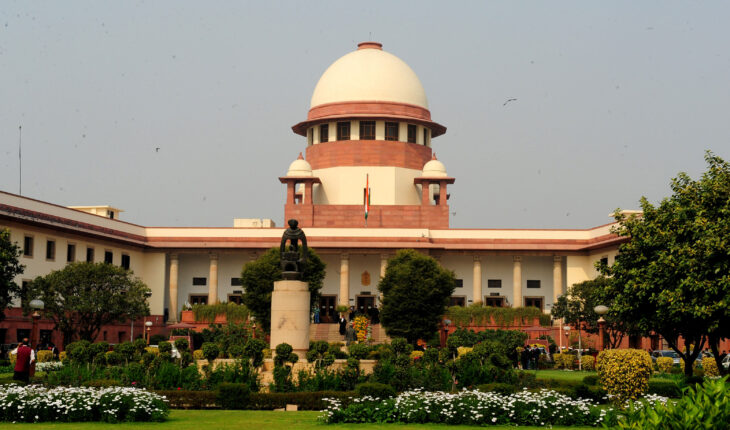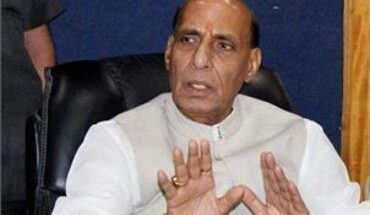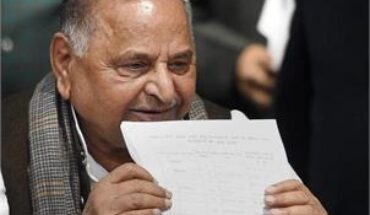NEW DELHI: Terming it an attack “most brutal, barbaric and diabolical”, the Supreme Court on Friday upheld the death sentence for four men convicted of the savage rape and murder of a young woman who came to be known by an outraged nation as “Nirbhaya”, the fearless.
Signalling closure for the sensational case that had galvanised the country and triggered a change in India’s rape laws, a three-judge bench termed the December 16, 2012 gang- rape and murder a “rarest of rare” case that had sent a “tsunami of shock” all over.
Applause broke out in the courtroom as the unanimous verdict — from the bench comprising Justices Dipak Misra, R Banumathi and Ashok Bhushan — was announced and the victim’s parents, lawyers and other litigants present in the room stood up in appreciation. Justice Misra wrote the judgement for himself and Justice Bhushan, while Justice Banumathi wrote a separate but concurring verdict upholding the Delhi High Court ruling, which in turn had concurred with the trial court. The four convicted men are Mukesh (29), Pawan (22), Vinay Sharma (23) and Akshay Kumar Singh (31). They can appeal today’s verdict in the apex court, and finally seek presidential mercy. A fifth accused, Ram Singh, allegedly committed suicide in Tihar Jail in March in 2013 and the sixth, a convicted juvenile was sentenced three years of punishment in a reform home, and released in 2015. The six men had assaulted Jyoti Pandey, the 23-year-old paramedic student, and a male friend in a moving bus as it drove through the streets of New Delhi. She was thrown out of the bus -so grievously injured that her insides were spilling out – along with her male friend near the airport. A fortnight later, on December 29, 2012, she succumbed in a Singapore hospital. Almost five years later, her parents, Badri Nath Singh and Asha Devi, said they were at peace after the verdict. Her father, Badri Nath Singh, said he could finally sleep well tonight. Their daughter, too, now rests in peace, the couple told PTI after the judgement. “She would have turned 28 on May 10 if she had lived. Today’s verdict is a gift for her,” Singh said. “What about justice for others whose cases are pending in courts?” Singh asked. But the apex court verdict, he added, would give a boost to rape survivors seeking justice. “At times I would feel weak, wanting to give up the fight. But then my daughter’s face would flash in front of my eyes and I would pull myself up,” Asha Devi said. The parents, who have started the Nirbhaya Jyoti Trust to help rape victims, also stressed that their daughter should be identified by her name. “Those who commit such crimes should hang their heads, not us,” Singh said. In its hard-hitting verdict running into almost 500 pages, the court said the convicts had treated the victim as an object of enjoyment, with the single purpose of ravishing her. The apex court said the aggravating circumstances outweighed mitigating circumstances like the poor family background, young age of accused, good conduct in prison marital status and small children. The bench also said the nature and the manner of the crime had devastated social trust and it fell in the ‘rarest of rare’ category, warranting death penalty. Reacting to the verdict, Law Minister Ravi Shankar Prasad said it was a victory of the rule of law. His colleague, Women and Child Development Minister Maneka Gandhi, added that the verdict would act as a deterrent against heinous crimes. “It has been five years, but in this country getting justice takes decades. So justice definitely has been done,” she told reporters. Taking a different view, senior advocate Rebecca John, a “staunch opponent” of the death penalty, referred to the verdict in the Bilkis Bano case yesterday where the Bombay High Court upheld life imprisonment for 11 people and noted the judicial system’s “difference in approach”. “What were the mitigating circumstances there? In Bilkis’ case she lost a baby girl. Her head was crushed with a stone. I find it very disturbing that offences committed in other contexts, which are equally brutal, are treated differently,” John told PTI. Apart from the usual moral and ethical questions, John said, there is also no evidence to suggest that death penalty acts as a deterrence. Instead, it “acts as an incentive” for criminals to commit murder in rape cases. “When you have death in the penal provisions the chances of the criminal murdering the victim rises manifold to suppress evidence,” she explained.—PTI






